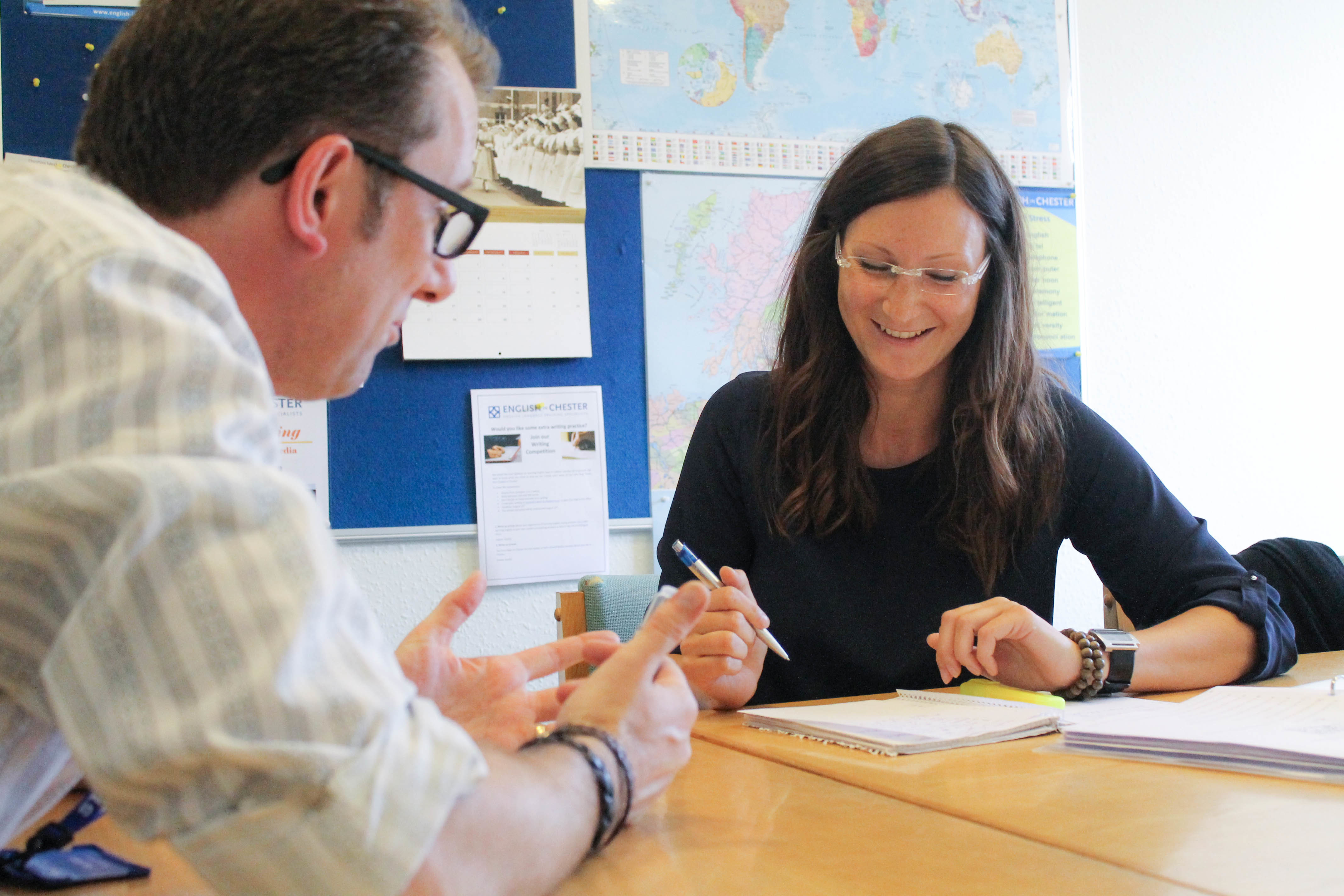How learning Business English can help you succeed in the virtual meeting room
Avoid awkward virtual interruptions. Master the Business English communication skills to ensure your insightful ideas are heard and understood every time.


We'll give you some of the key vocabulary to use in your business presentations, so you sound like a professional from day 1!
Presentations are a central part of day-to-day work life. If delivered well, presentations can be a very effective way to get your ideas across to your work colleagues, clients and business partners. But without the right preparation and delivery, presentations can also be very lengthy and boring.
In this blog, we’d like to give you some advice on how to give great business presentations in English. The advice applies to face-to-face and online channels like Zoom, Skype, Google Meet, etc.
Let’s start with some general points:

Building on the last point, here’s a common structure, along with the kind of language that can be used at each stage:
Introduction
Good morning/Good afternoon ladies and gentlemen.
Today, I’d like to talk to you about… or – Have you ever wondered why/what/whether…? _(Good questions get them thinking!) _Well, let me explain.
I’ve divided my talk into (for example) three parts.
First, we’ll look at…
Second, we’ll move on to… (‘Firstly’ and ‘Secondly’ are fine too, but more formal)
Finally, we’ll consider…
Referring to questions (decide on your approach beforehand)
or
Beginning each section
Referring to visual information
Conclusion
or
This structure allows you to repeat key messages so that they are more likely to be heard and understood. Use different words and levels of detail at each stage, with the main substance in the middle. To sum up…

These are just some of the points that we cover on our Business English Courses and Courses for Professionals 30+ in ELC Brighton and English in Chester. These courses, traditionally known as ‘English for Executives’, ‘Executive English’ or ‘Business English’ have now grown to cater for the needs of a much broader audience including business people, professionals and adults students who value a more mature studying and networking environment.
Good luck with your presentations and thank you for reading!

Chris Fozzard is a Language Trainer at English in Chester.
After graduating from university with a degree in English, Chris enjoyed a long and successful career in banking and change management. He subsequently retrained as a teacher and started at English in Chester in 2017. Chris has taught in all areas of the school and, given his background, has a particular interest in teaching English for business purposes.
The ELC group of schools is the **top-ranked grouping of schools in the UK*. ELC Brighton is the joint No1 language school in the UK with 15/15 areas of strength. English in Chester, with 14/15 strengths, and ELC Eastbourne**, with 13/15 strengths, are in the Top 5%.
*based on EL Gazette’s review of British Council inspection reports.
Avoid awkward virtual interruptions. Master the Business English communication skills to ensure your insightful ideas are heard and understood every time.

In our globalised world, English is the most commonly used shared language, and becoming fluent is often seen as hugely important if you want to travel, work or…
